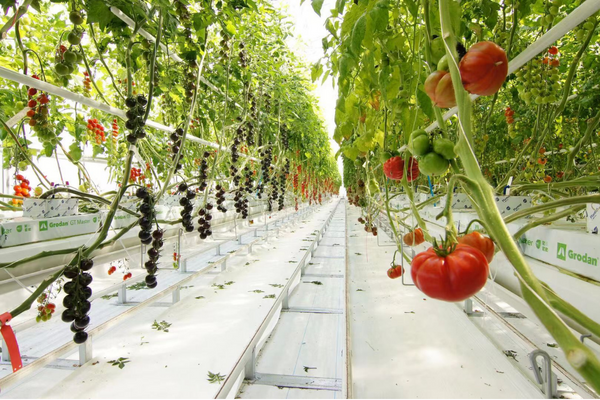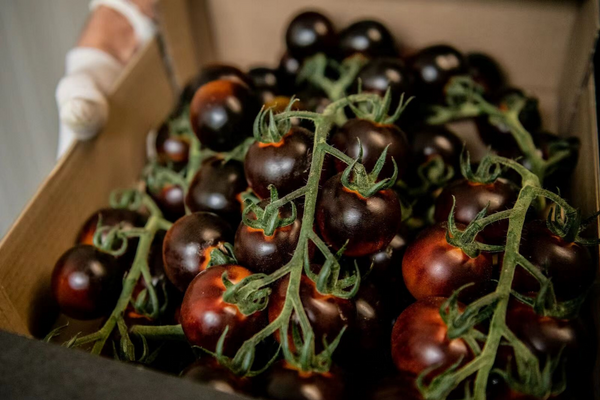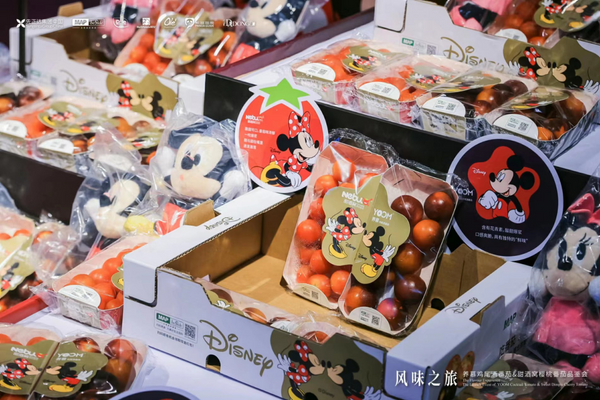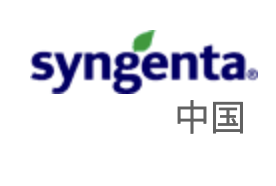"As far as the vegetable seed industry is concerned, Syngenta's business development in the Chinese market is relatively balanced. We have a variety of seeds that are promoted in China, including sweet corn, watermelon, tomatoes, bell peppers, kale, broccoli, spinach, etc.," said Zhao Yiyun, China Vegetable Seed Strategy and Sales Manager at Syngenta Group.
"One of the main products we are currently launching in the Chinese market is the red fruit tomato, which is the strength of European breeding companies. However, the Chinese market traditionally likes pink tomatoes. Bell peppers are also one of our very distinctive products, but they are mainly grown in tunnels now. Almost no plants are grown in high-end smart glass greenhouses. The colors are mainly red and yellow, mostly red, and the share of red and yellow pepper in the market is about 4:1, sometimes 5:1, with slight fluctuations but little change. Syngenta Group has a very strong breeding advantage and global resources. We will launch the right products according to the specific needs of the Chinese market. Compared with Europe, China's high-value bell pepper cultivation area is not large, but the unit value is very high. Bell peppers are often eaten as side dishes in China, and their color and appearance are the most important to consumers. Consumers are willing to pay high prices for their favorite health products."

"In our view, the overall cultivation area of Chinese vegetables will not significantly increase in the future, but the cultivation method will definitely change greatly." With the improvement of seed quality, pest control methods, and cultivation technology, the increases in yield will result in a decrease in the commercial seed quantity of a single vegetable variety. At the same time, the variety of vegetables will be further enriched, and the proportion of high-quality and high-value vegetable crops will increase."

"It can be seen that China has placed the seed industry in a very important position, and more breeding companies have gradually established scientific research capabilities in China. Compared with international enterprises, domestic enterprises are more familiar with the local market, and their operations are more flexible and costly. But the technical strength of global breeding companies is more stable. In the future, the competition between domestic and imported seeds will also become more and more intense. At present, multinational enterprises mainly cover the high-value seed market, which is dedicated to protected cultivation. As far as Syngenta Group is concerned, thanks to the advantages of Sinochem Group, we have both strong global breeding resources and localized channels and networks. China is a critical strategic market, and we will also establish a special category specifically for the Chinese market to support local development."
Syngenta China has also integrated its vegetable business into MAP and digital agriculture, uniting partners in the industrial chain and hoping to create a whole chain from seed to table. At present, we have mainly selected several products with special characteristics and high potential value to practice this model and work with growers, fresh fruit distributors, and retailers to create an end-to-end closed loop. For example, Yangmu purple and black tomato is a good example. This variety has a unique purple-black appearance, high anthocyanin content, and is rich in nutrients. For such products, we use a closed-loop approach, and the products are sold through our designated distribution channels. We also worked with Disney to create an IP image for the breed, a completely closed-loop model that has little precedent in the seed industry. Creating a retail terminal brand image is also part of Syngenta's cooperation with MAP. Next, we will continue to introduce more innovative varieties to enrich this model, bringing Chinese consumers more abundant, delicious, healthy, and nutritious vegetable and fruit products.

"China's vegetable industry is still relatively scattered, and Syngenta China should not only be an industry leader but also be a promoter. We are also constantly integrating the industry and better promoting the development of the industry through mergers and acquisitions."
More information:
Syngenta China
Website: https://www.syngenta.com.cn
